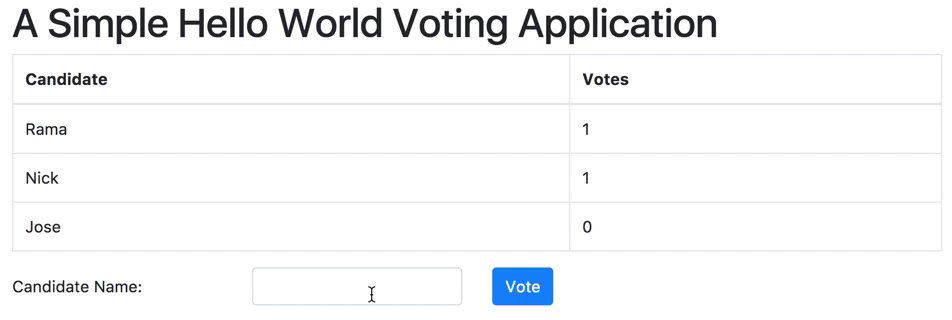https://github.com/adamyala/your_first_decentralized_application_python
A bare minimum tutorial on deploying smart contracts with python
https://github.com/adamyala/your_first_decentralized_application_python
blockchain ethereum example python smart-contracts solidity tutorial
Last synced: 4 months ago
JSON representation
A bare minimum tutorial on deploying smart contracts with python
- Host: GitHub
- URL: https://github.com/adamyala/your_first_decentralized_application_python
- Owner: adamyala
- License: mit
- Created: 2017-10-26T13:21:32.000Z (over 8 years ago)
- Default Branch: master
- Last Pushed: 2019-10-21T14:18:27.000Z (over 6 years ago)
- Last Synced: 2025-04-23T03:39:00.802Z (10 months ago)
- Topics: blockchain, ethereum, example, python, smart-contracts, solidity, tutorial
- Language: Python
- Homepage:
- Size: 33.2 KB
- Stars: 140
- Watchers: 10
- Forks: 28
- Open Issues: 2
-
Metadata Files:
- Readme: README.md
- License: LICENSE
Awesome Lists containing this project
README
# Your_First_Decentralized_Application_Python
This code borrows heavily from [llSourcell's turtorial](https://github.com/llSourcell/Your_First_Decentralized_Application) which in turn borrows heavily from [maheshmurthy's tutorial.](https://github.com/maheshmurthy/ethereum_voting_dapp)
Please head over to each and toss a star on the repositories. Both of them created a wonderful tutorials to learn from.
## Overview
We will be building a decentralized voting application!
The functionality of this repo is nearly identical to llSourcell's but the entire implementation is done in python!
## Setup
### Requirements
* Python 3.6+
* Solidity 4.23+
* Node.js 9.8+
### Steps
1. Create and activate a virtual environment
1. Install dependencies with `pip install -r requirements.txt`
1. Install the [ganache-cli](https://github.com/trufflesuite/ganache-cli) command line tool with `npm install -g ganache-cli`
1. **What does this cli do?** It runs an ethereum node locally. Normally we'd have to download a lot of blockchain transactions and run a test ethereum node locally. This tool lets us run a small local node for easy peasey development. This tool used to be called the `testrpc`.
2. **Uh... This tool isn't python...** True, but I have found the JavaScript tooling for testrpc to be fantastic and easy to use. If you don't want to bother with `npm` or just want to try out a full python stack, try out [eth-testrpc](https://github.com/pipermerriam/eth-testrpc). It's pip installable but not as maintained as `ganache-cli`.
## Usage
Open up two tabs. In the first tab run `ganache-cli`. This will start a block chain locally that we can play with.
In the second tab activate your virtual environment and run `main.py`. This will start our little flask app in debug mode, deploying our contract in the process.
After the python file runs you should see something like:
```
Transaction: 0xd3d96eb1d0b8ca8b327d0eca60ff405d0000c5cd249d06712877effbcf73095f
Contract created: 0x9e4fab9629b8768730d107ae909567974c4c8e35
Gas usage: 352112
Block Number: 1
Block Time: Sat Dec 23 2017 22:31:13 GMT+0200 (SAST)
```
in the first tab. This is your contract being deployed to the chain on your local node!
`main.py` is where the bulk of our logic happens. It deploys our smart contract to our test ethereum node and starts serving our flask app. `main.py` and `voting.sol` are heavily commented so please give those a read to understand what each is doing.
Next open http://127.0.0.1:5000/ in your browser of choice. The web application will connect to our deployed contract and use it as the backend.
Congrats! You setup your first decentralized application with python!
